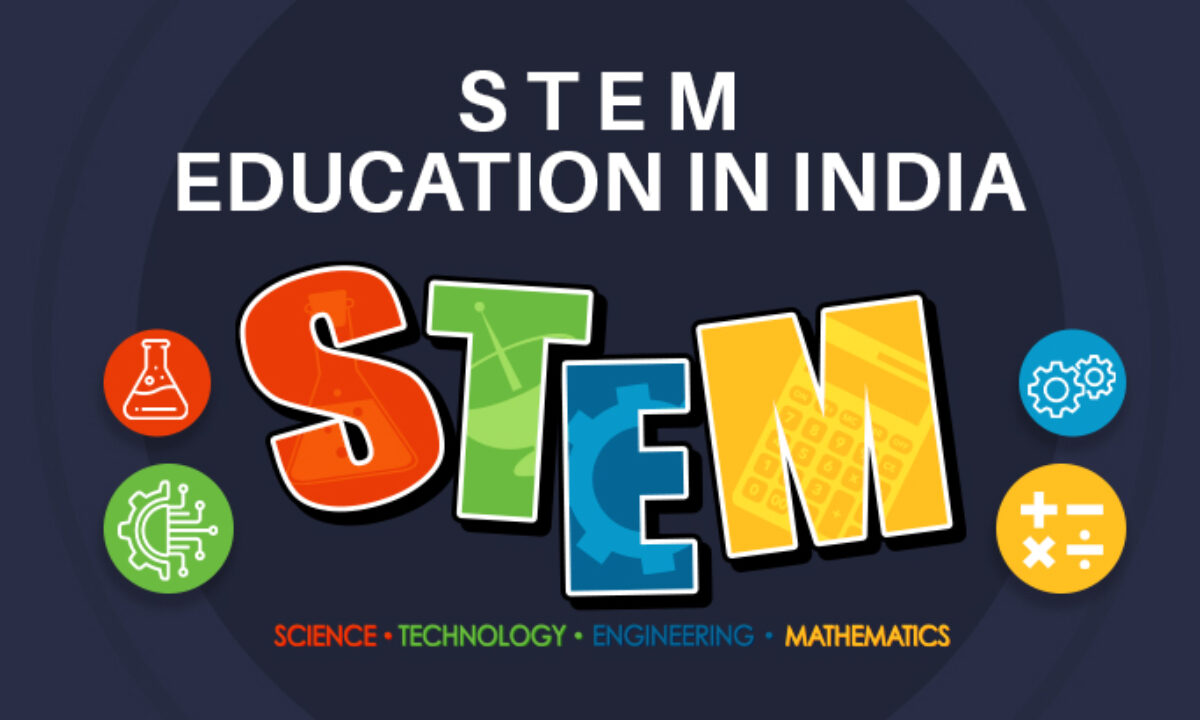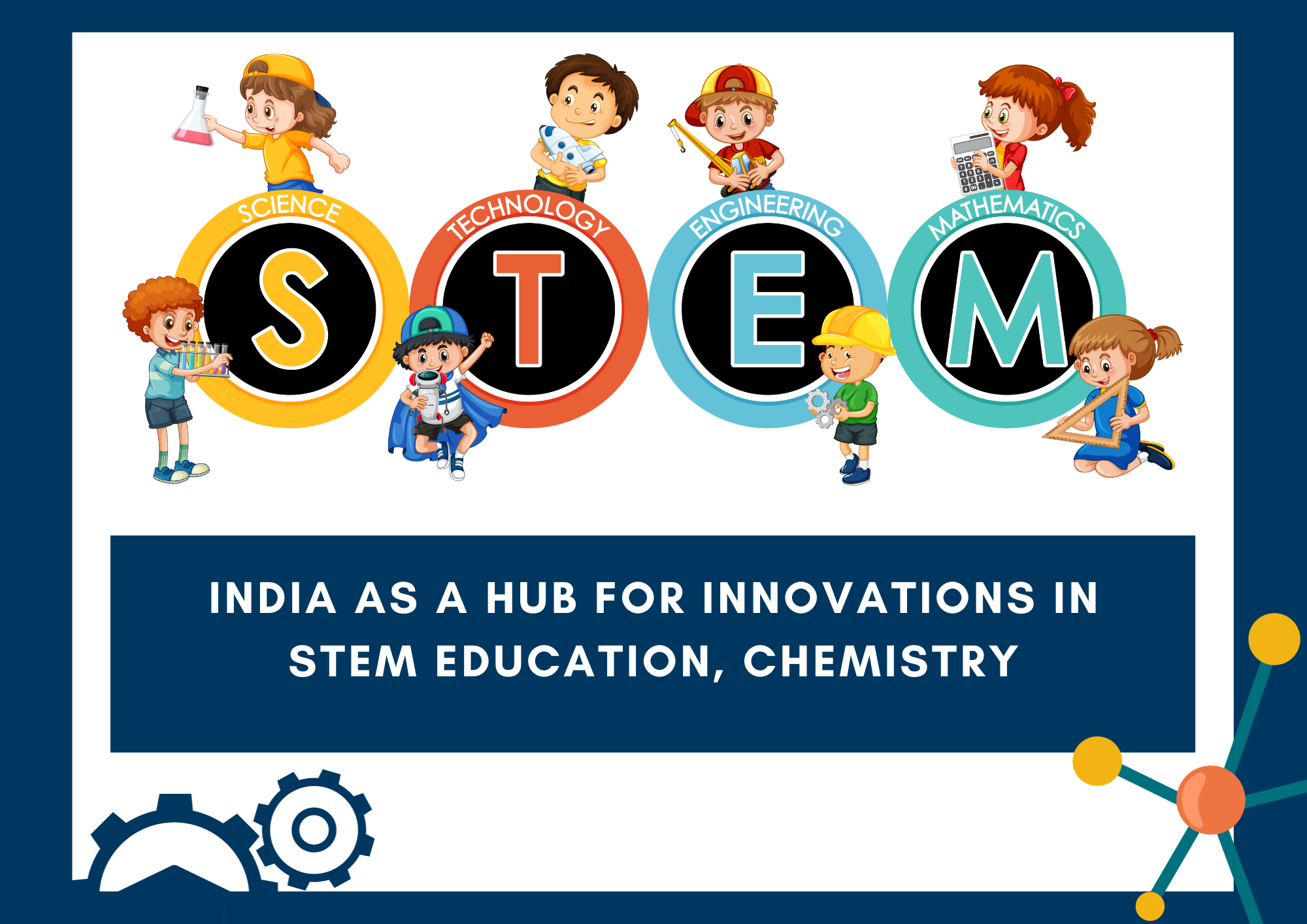STEM education, which encompasses Science, Technology, Engineering, and Mathematics, is the foundation of modern societies. It not only prepares students for future challenges but also nurtures innovation and critical thinking.
India, with its burgeoning population and tech-savvy youth, is rapidly becoming a hub for innovations in STEM education, particularly in the field of chemistry.
The Importance of STEM Education

STEM education serves as the backbone of progress in the 21st century. It equips students with the skills and knowledge required for a wide array of careers, ranging from data science to aerospace engineering.
Moreover, STEM education cultivates problem-solving abilities, analytical thinking, and innovation, making it indispensable in today’s world.
The global demand for STEM professionals is on the rise. As technology continues to shape our lives, there is a growing need for experts who can design, develop, and implement cutting-edge solutions.
India, with its vast pool of young talents, is poised to meet this demand and become a major player in the global STEM landscape.
The Growth of STEM Education in India

Historically, India has always been a center for learning and innovation. Ancient Indian mathematicians and scientists made significant contributions to mathematics, astronomy, and other STEM fields. Today, the nation is experiencing a resurgence in STEM education.
Government initiatives and policies play a pivotal role in promoting STEM education in India. Programs like “Make in India” and “Digital India” encourage the growth of the technology and manufacturing sectors, driving the need for a skilled STEM workforce.
Additionally, there has been a substantial increase in the number of STEM-focused institutions and programs across the country. From renowned universities to specialized STEM schools, India is witnessing a proliferation of educational options catering to the STEM disciplines.
Challenges in STEM Education

Despite the progress, STEM education in India faces several challenges. One of the most pressing issues is the shortage of quality STEM teachers and resources. Many schools and colleges struggle to provide up-to-date laboratories and equipment, hindering hands-on learning experiences.
Gender disparities persist in STEM fields, with fewer female students pursuing careers in science and technology. Addressing this gender gap is crucial to unlocking India’s full potential in STEM education and innovation.
Access to quality STEM education remains uneven, particularly in rural areas. The digital divide exacerbates this issue, making it imperative to bridge the gap and provide equitable opportunities for students from all backgrounds.
The Role of Chemistry in STEM Education

Chemistry, often referred to as the “central science,” plays a pivotal role in education. It forms the foundation for understanding the properties and interactions of matter, making it an essential component of any STEM curriculum.
Chemistry’s significance extends beyond the classroom. It drives innovations in various industries, including pharmaceuticals, materials science, and environmental research. Chemistry education equips students with the knowledge to tackle real-world challenges, such as climate change and drug development.
India’s Innovations in Chemistry Education
India’s contributions to chemistry education are gaining international recognition. Emerging trends in chemistry education emphasize hands-on learning, interdisciplinary approaches, and the integration of technology.
Collaborative efforts between academia and industry are fostering innovation in chemistry education. Students have opportunities to work on industry-sponsored projects, gaining practical experience and insight into real-world applications of chemistry.
Case studies of successful chemistry education programs showcase India’s commitment to excellence in education. These programs are equipping students with the skills and knowledge needed to excel in the field of chemistry and contribute to global advancements.
Prominent Figures in Indian Chemistry Education

Several influential educators and researchers in India are shaping the future of chemistry education. Their dedication to teaching and groundbreaking research has a profound impact on fostering innovation in STEM.
Dr. CNR Rao, a renowned chemist, and educator, has made significant contributions to the field and played a vital role in promoting chemistry education in India. His work continues to inspire future generations of scientists.
International Recognition and Collaborations
India’s rise as a hub for STEM education has garnered international recognition. Collaborations between Indian institutions and global partners are becoming increasingly common. These partnerships facilitate knowledge exchange and the sharing of best practices in STEM education.
The international community acknowledges India’s potential to drive innovation and contribute to global advancements in STEM fields, including chemistry.
Future Prospects and Recommendations
The future of STEM education in India is promising. With continued government support, investments in infrastructure, and efforts to address challenges, India is poised to become a global leader in STEM education and research.
Recommendations for further growth include expanding access to quality education in rural areas, addressing gender disparities, and enhancing teacher training programs. Encouraging more students to pursue careers in chemistry and STEM is essential to sustain India’s growth in these fields.
Conclusion
In conclusion, India’s journey to becoming a hub for innovations in education, particularly in chemistry, is marked by significant progress and potential.
STEM education equips students with the skills needed to thrive in a rapidly evolving world. Chemistry, as a fundamental STEM discipline, plays a crucial role in addressing global challenges and driving innovation.
India’s growing recognition on the global stage and collaborative efforts with international partners are testament to its commitment to excellence in education.
With continued investments and a focus on inclusivity, India is well on its way to shaping the future of STEM education and contributing to global advancements in chemistry and other STEM disciplines.










